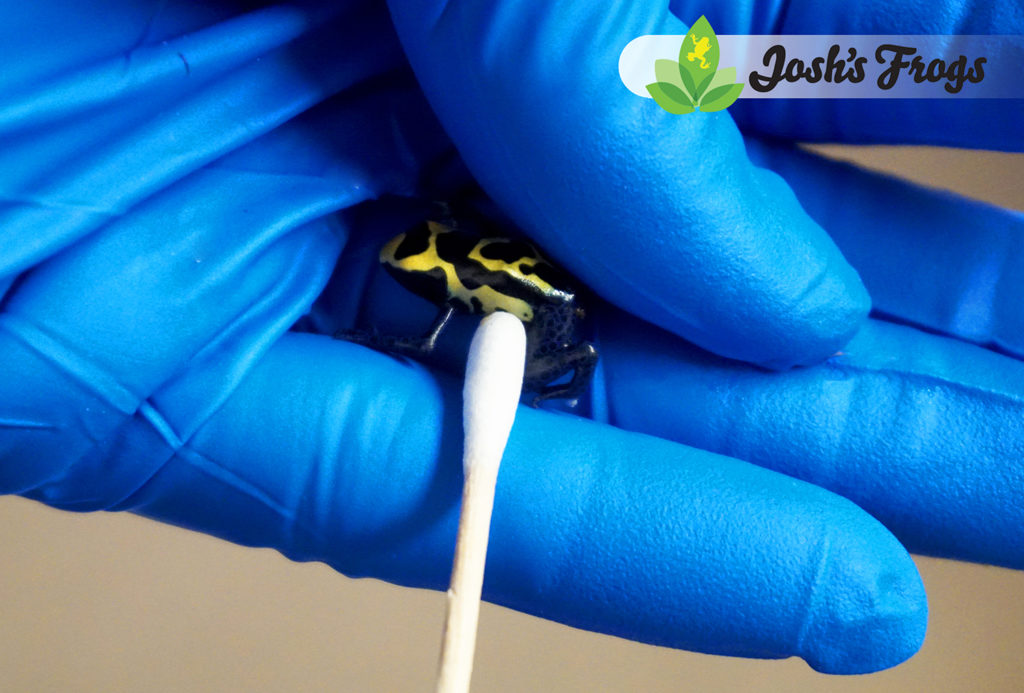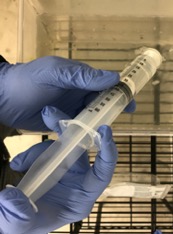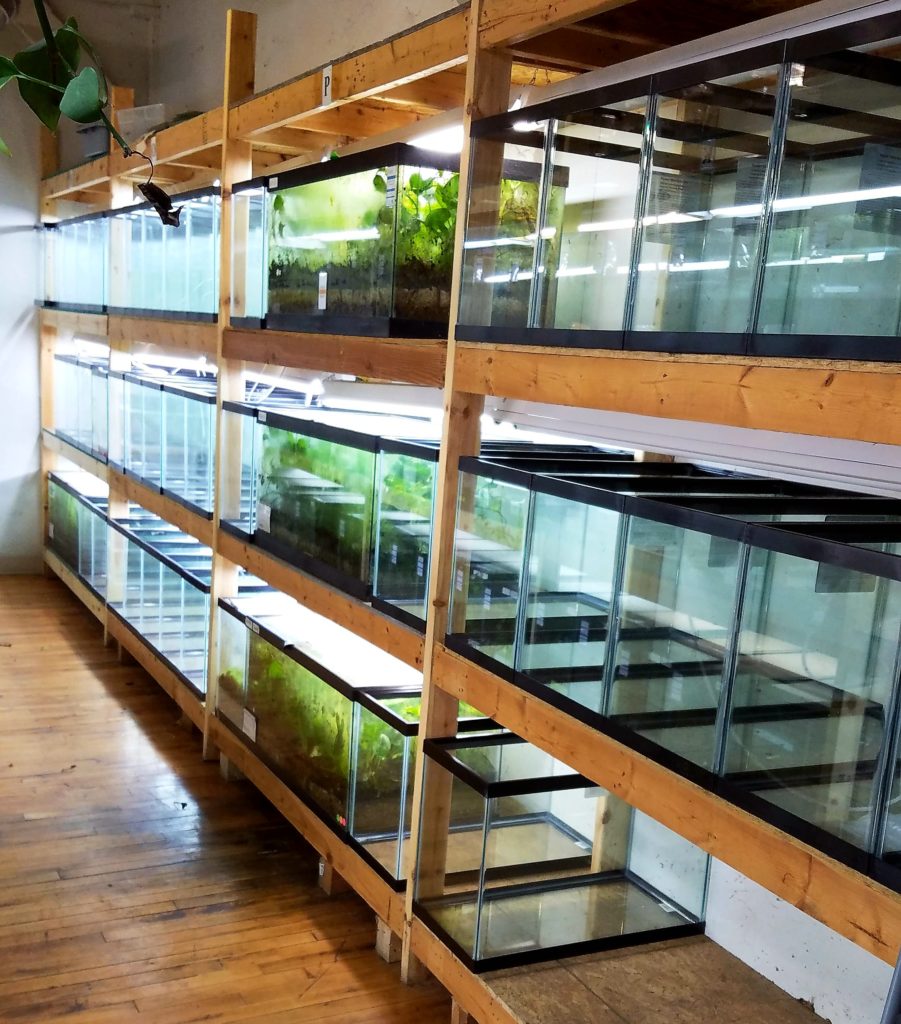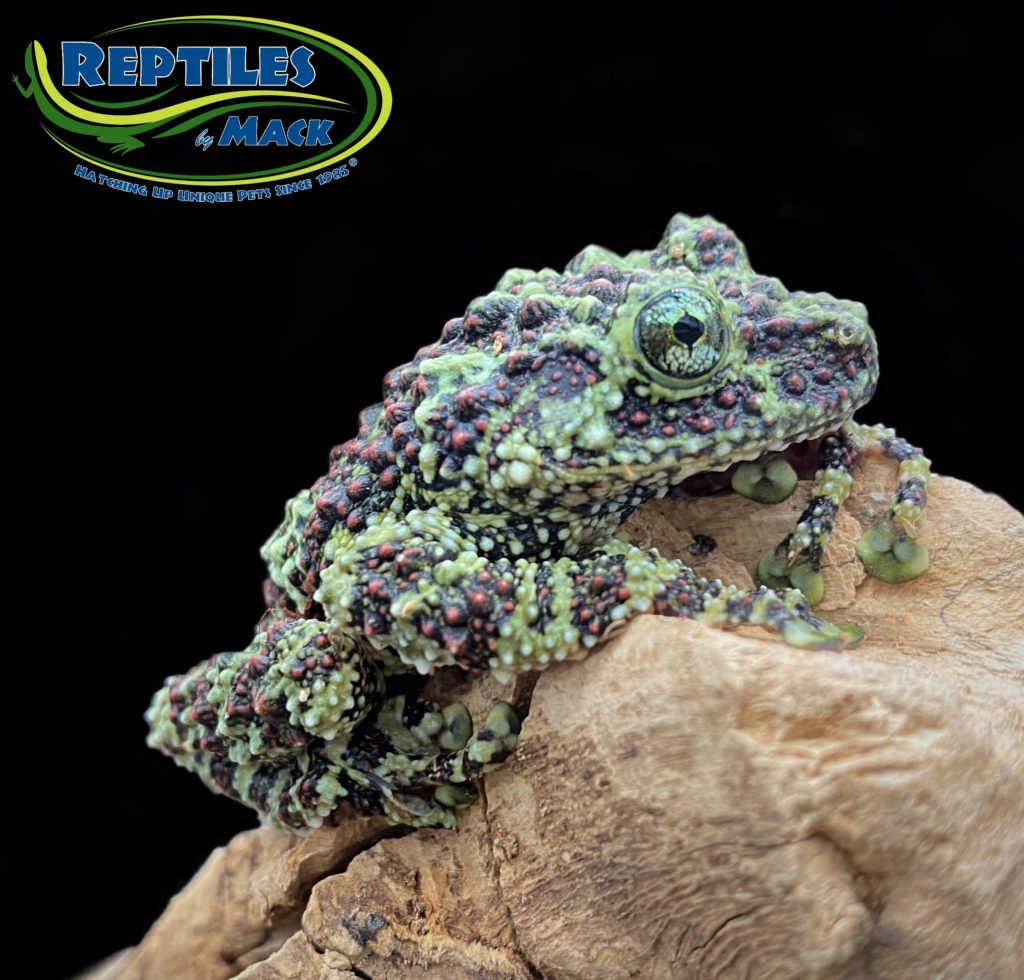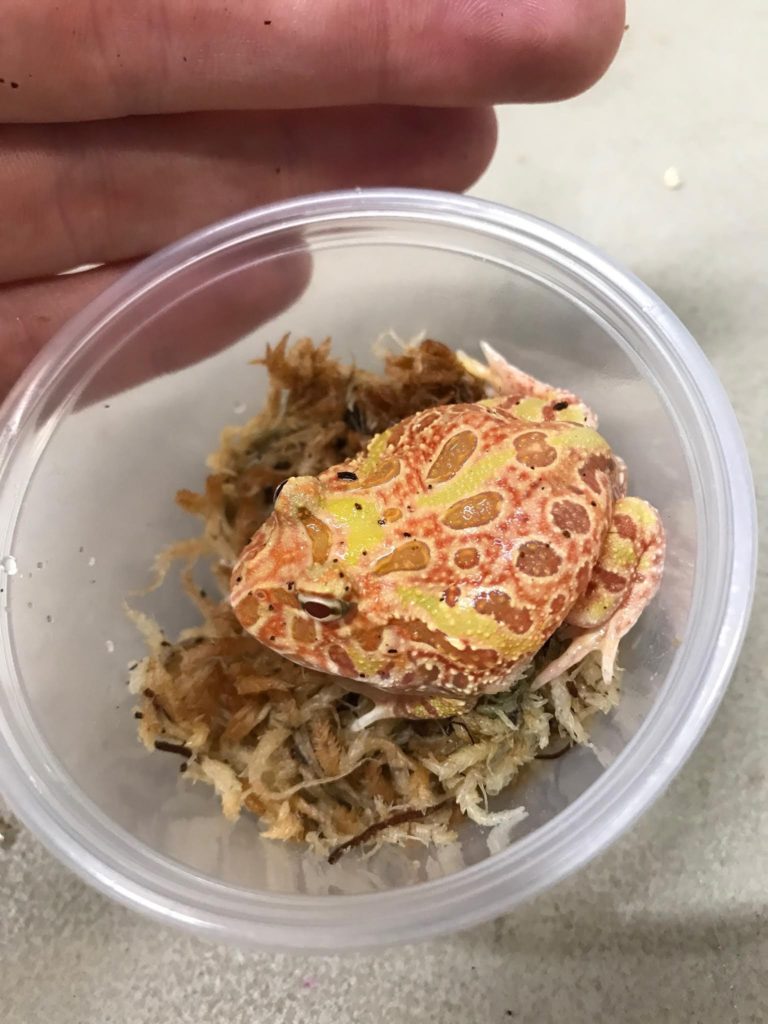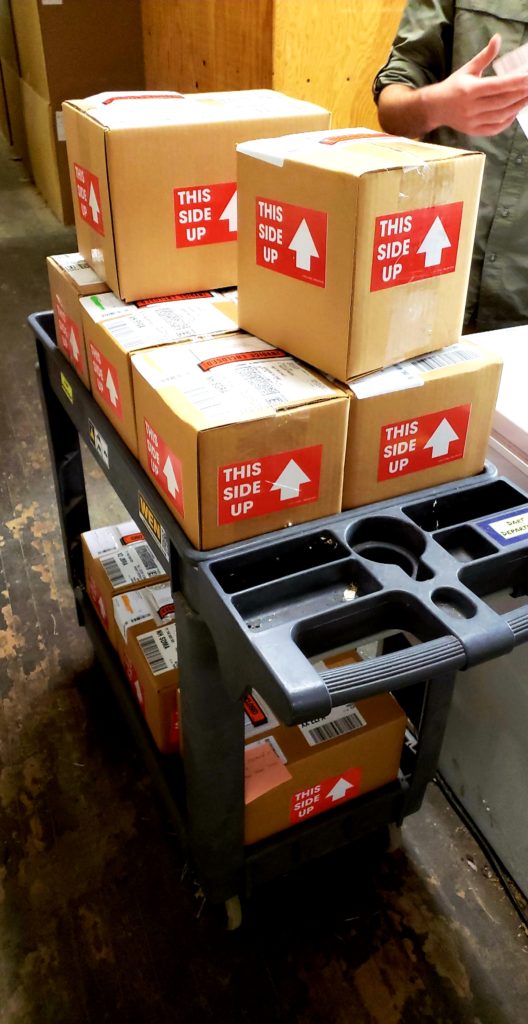How It Works
- You provide your shipping information and answer a few questions about your business and housing containers (e.g., aquatic, terrestrial) in an online form that is controlled by PIJAC (link to the online volunteer form will be provided at the end of the sociological survey).
- PIJAC will send a testing kit to you (starting the week of 23 August 2021) consisting of swabs (for terrestrially housed amphibians) and/or water-sampling materials (for aquatically housed amphibians).
- Within two weeks of kit receipt, you will collect skin swabs from terrestrial housed amphibians or water samples for aquatic species
- Use the pre-paid shipping box to anonymously send the swabs and/or water-sample filters to Washington State University (WSU).
- Dr. Jesse Brunner (WSU) will test the samples for ranaviruses, Chytrid fungi, and beneficial microbes.
- Your results will be made available to you via a website with your unique ID and PIN. (NOTE: Results may take 2-3 weeks).
- Your results will be combined with the socioeconomic survey data to estimate prevalence (% infected) of microbes in U.S. amphibian pet trade and to identify business practices that promote healthy trade.
Participation Requirements and Benefits
As a participant, we ask that you:
- Complete the socioeconomic survey and answer a few additional questions about your business and amphibian husbandry practices.
- Watch the appropriate sample collection training videos: Swabbing Video or Water Collection.
- Watch training video of how to randomly select tanks/containers to sample: Random Sampling Video.
- Randomly select up to 30 tanks/containers to sample (note: less tanks can be sampled depending on your available time) after watching the training video and using the following online tool: Random Container Generator.
- Swab individual frogs or salamanders (terrestrial species) or filter water from housing containers (aquatic species).
- Mail the swabs and/or water filters to WSU for testing (pre-paid postage label will be provided).
What we can provide to participants:
- Free test results for Ranavirus, Batrachochytrium dendobatidis (Bd), B. salamandrivorans (Bsal), and some beneficial microbes (such as Bacillus mycoides).
- Industry-wide estimates of prevalence of microbes, as well as their association with husbandry practices that promote animal wellbeing and reduce revenue losses.
- Free Krispy Kreme donuts (gift card) and entry into raffle for prizes from Josh’s Frogs and Reptiles by Mack!
How we will maintain your anonymity:
We understand that for many, participation will be contingent on test results not being linked to their facility. We have therefore set up a system where no group in our research collaboration can know both the participating institutions and the test results. Your shipping information will be sent only to PIJAC, and PIJAC will be responsible for sending you a test-kit, but are not involved in the process any further. So they will know who the participants are, but not the results. The kit you receive will have a unique ID and you will be asked to create a unique PIN. Both items will be needed to retrieve your results from a special-purpose website. When WSU receives your test kit swabs and filters, we will know only the ID and PIN, so will not be able to identify the facility from which it came. The academic researchers will thus know individual and aggregate results, but not the participating facilities.
Project Resources
Blog (submit questions)
For more information or to participate, contact any of the individuals below:
- PIJAC: Josh Jones, josh@pijac.org, (202) 452-1525, ext. 1040
- Washington State: Jesse Brunner, jesse.brunner@wsu.edu, (509) 335-3702
- University of Tennessee: Matt Gray, mgray11@utk.edu, (865) 974-7126
